“I’ll resume healthy eating after my vacation… once the baby is born… after Dad gets out of the hospital… January 1… Monday.” While this kind of “pause-button mentality” seems reasonable, it could be ruining your health and fitness. Here’s why, and what to do about it.
- Want to listen instead of read? Download the audio recording here…
++++
There’s a question that’s been finding its way to me a LOT lately—from Precision Nutrition Coaching clients, Certification students, ProCoaches.
“Why don’t your programs offer a ‘pause’ feature?”
After all, what’s the harm in letting clients/patients take a break from a nutrition and fitness plan when they’re:
- leaving for vacation,
- completely swamped at work,
- pregnant, or just after delivery,
- injured, or
- caring for an ailing family member?
For a client, the thought process boils down to:
If I miss some workouts, eat the wrong things, skip the homework… I fail.
Aren’t I more likely to succeed if I take a break, just until I have the time to do it right?
This is what I call the ‘pause-button mentality’.
Now, don’t get me wrong.
I think it’s normal—even commendable—to want to do your best. To consider taking time to regroup and then resume (or start over) when life feels easier.
At the same time, this completely natural and well-meaning impulse is one of the fastest, surest, most reliable ways to sabotage your plans for improved nutrition, health, and fitness.
Here’s why—and what to do instead.
(If you want to see the PN Supercoaches Robin Beier and Jon Mills discuss this article in even more detail, check out the video below. If not, simply scroll over the video player or click here to jump to the next section.)
PN coach roundtable: Robin Beier and Jon Mills discuss the pause button mentality
Starting fresh after you lose your way is a really comforting thought.
That’s probably why New Year’s resolutions are so popular, especially following the indulgence-fueled holiday season.
Give me that cheesecake. I’ll pick my diet back up on Monday!
In fact, we’ve learned in our nutrition coaching programs that the idea of a do-over is so alluring you don’t even need a mess-up for the pause-button mentality to take over.
Every January, we welcome a new group of clients. Every July, we take in the second, and final, group of the year.
In July, six months in, just knowing that there are new clients starting the program fresh in January makes some July clients “itch” for a new beginning, even though they’re already making progress, changing their bodies.
If only you’d let me start over, I’d really nail it this time!
But here’s the problem: The pause-button mentality only builds the skill of pausing.
Whether it’s tomorrow, Monday, next week, or even next year, hitting that imaginary pause button gives you some sense of relief.
It allows you a little respite from what can be a really tough slog.
(And the middle is always a tough slog, it doesn’t matter what kind of project you’re working on.)
This perceived relief is compounded by the illusion that if we “start fresh” later we can find the magical “right time” to begin.
Listen, I get it.
It can feel absurd to try to improve your eating and exercise habits while you’re in the midst of chronic stress / looking for a job / starting a new job / going on vacation / caring for aging parents / raising small children.
That’s probably why there are so many 21-day this and 90-day that. What adult has more than 90 days to go after their fitness goals with an all-out effort?
But what do these intense fitness sprints teach you?
The skill of getting fit within a very short (and completely non-representative) period of your life.
What don’t they teach you?
The skill of getting fit (or staying fit) in the midst of a normal, complicated, “how it really is” sort of life.
This is why the yo-yo diet thing has become such a phenomenon.
It’s not about willpower. It’s about skills.
In most fitness scenarios, you learn how to get fit under weird, tightly-controlled, white-knuckle life situations.
You build that one, solitary, non-transferrable skill—to slam the gas pedal down, drive the needle into the red, and squeal down the road for a little while, burning the rubber off your tires until you (quickly) run out of gas and crash.
What you don’t build is the ability to get fit under real-life conditions.
That’s why it doesn’t stick. Not because you suck.
But because the natural and predictable consequence of having a limited skill set is short-term progress followed immediately by long-term frustration.
What will be different next time?
I remember having lunch with a colleague who swore up and down that his low-carb diet plus daily running was the secret to staying in shape.
I had to follow up with a painful question: “Well, why aren’t you actually in shape?”
After a long pause: “Uhh, I’ve had a hard time sticking with it. We just had our second child. The holidays just ended. I just switched jobs.” He trailed off…
“But, once everything settles down, I’ll get with the program and get in shape again! I guess I’m just on a little break.”
This story illustrates the point perfectly.
Here’s someone who’s built his fitness on a house of cards. He knows only one thing: How to get in shape by following a very challenging program when the conditions are perfect.
And whenever life isn’t perfect, which is most of the time, he hits the pause button. He waits for a better time. (All the while losing the health and fitness he previously worked so hard for.)
That’s why, when our clients ask to press pause, we usually ask them:
“What will be different when you come back?”
Nine times out of 10, the honest answer is nothing. Nothing will be different.
Life is just… happening. And it’ll happen again in January, or after the baby is born, or after Mom gets better, or at any other arbitrary point you pick.
And what then?
I’ve wanted to press “pause” myself.
If you’ve ever felt like pressing pause, or you feel this way right now, it might help to know I’ve felt exactly the same way.
A few years back, my wife and I decided to renovate a home. During the reno, we lived in a tiny apartment above my in-laws’ garage. At the time I was also starting up Precision Nutrition.
Every day we’d wake up and get straight to work. At the end of the day, we’d drive 1 ½ hours to the new house to chip away at the reno. Then, late at night, we’d drive 1 ½ hours back and fall into bed. Repeat.
At first, I thought there was no way to exercise. My schedule was completely packed, I had nowhere to work out, and my eating was less than ideal.
But after a couple of weeks I realized that something was going to be better than nothing.
The renovations would continue. Running a business would only get more demanding. And we were planning to have our first child.
I realized I couldn’t wait. I couldn’t press pause. Because, if I didn’t continue, there’d never be that “perfect time” to hit play again.
I needed to find a way to squeeze in some kind of workout, however quick, easy, and unglamorous.
Let’s accept that life has no pause button.
The key lesson here is that, like it or not, the game of life keeps going.
There is no timeout.
There’s never going to be a moment when things are magically easier.
You can’t escape work, personal, and family demands. Nor can you escape the need for health and fitness in your life.
Here’s a thought experiment:
What if you tried to hit pause in other areas of your life?
Imagine you’re up for a big promotion at work. For the next two weeks, all you want to do is focus on mastering an upcoming presentation, and winning over your boss.
Trouble is, you’ve got two young children at home who tend to grasp, koala-like, onto your legs and demand your full attention.
Honey, you say to your spouse, I’m just gonna press pause on being a parent for now. I’ll be staying at a hotel. Don’t contact me.
I don’t know about you, but that would NOT go over well in my family.
You can’t really press pause—and you definitely can’t hit reset—on being a parent. (You’ve thought about it, though. I know you have.)
Just like you can’t stop showing up for work and expect not to get fired. Or “take a break” from being married and not wind up divorced.
Generally, when it comes to life, we know we’re not always going to be on our A Game. Sometimes we’re superstars. Most of the time we just do our best.
We muddle through. We keep going.
So why do we expect it to be any different with fitness?
In my case, above, I hired a coach and we came up with a simple workout program that met these criteria:
- No more than 3x a week.
- No more than 10 minutes per session.
- Has to be done upon waking up, right next to the bed.
- Requires no equipment.
I did that for about 6 months. Was it the Best Workout Ever? No! Did I end up, after 6 months, fitter than ever? Heck no!
But was it better than hitting the pause button and doing nothing? You bet!
See, perfectionism is not the point.
“Completing” a program, PN Coaching or any other, is not the point.
Being the “best” for a tiny window of time is not the point.
The point is to keep going. Sometimes awkwardly, sometimes incompetently, sometimes downright half-assed. But to keep going nonetheless.
As I often teach our new clients:
The “all or nothing” mentality rarely gets us “all”. It usually gets us “nothing”.
That’s when I propose a new mantra:
“Always something”.
Instead of pressing pause, adjust the dial.
Nowadays I like to think of my fitness and nutrition efforts as a dial.
There are times when I want to dial my efforts up, and times when I want to dial them down. But I never want to turn the dial off completely.
Here’s how this plays out in the context of my life.
Sometimes, say when I’m training for a track competition or concentrating on a particular goal, my fitness dial might be tuned to 9 or 10 out of 10.
Channel 10 means I work out every day. Every meal is planned and carefully considered. I think a lot about fitness. And not much about anything else.
Work, family, hobbies… they’re all in maintenance mode (with the permission of the people this affects, of course).
However, as I write this, my life involves the following:
- Settling into a new home.
- Conducting major home renovations.
- Raising 4 children, one of them still a baby.
- Running a growing business with nearly 100 team members.
So these days, the dial rarely goes past 3 or 4. I work out, maybe, three days a week. And most of my meals are just “good enough”.
(For the record, I’m totally cool with that. There is no guilt about having my dial set a little lower. What’s most important is that the dial is still set to “on”.)
The important lesson: There’s a big difference between tuning your dial to 3, 2, or even a 1, and turning the whole thing off.
And when you realize how doable—and effective—channels 3 and 2 and 1 can be, you see that there’s never a good reason to hit “pause”.
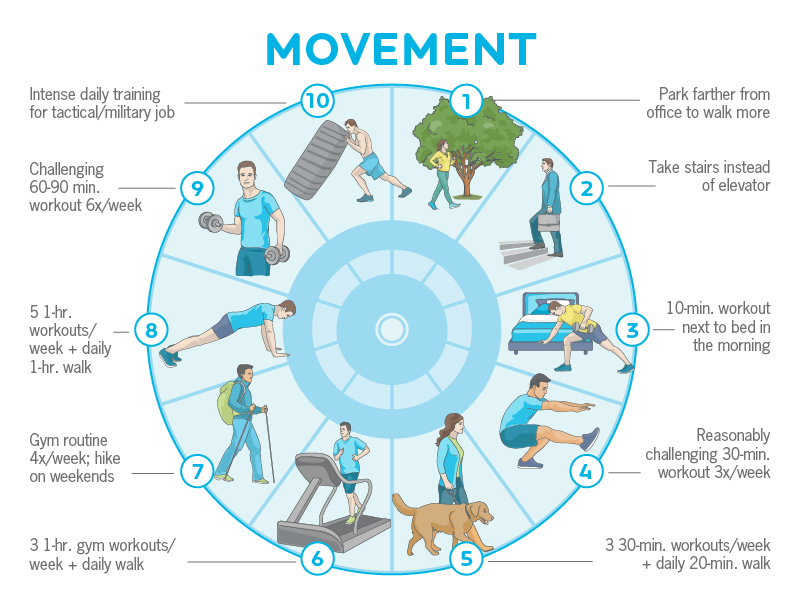
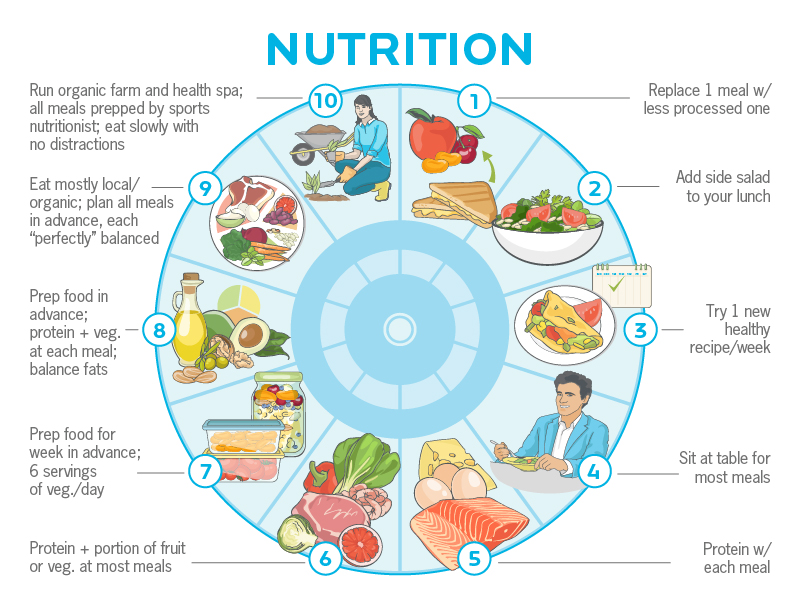
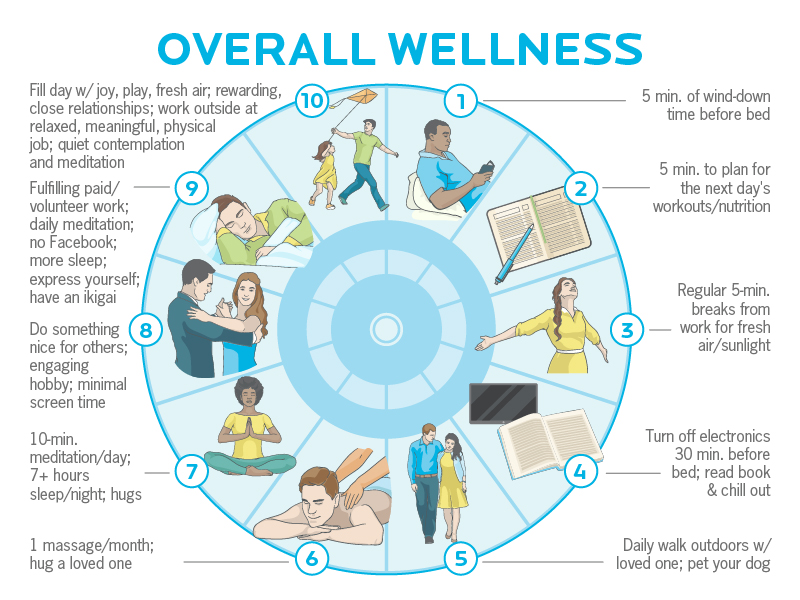
I get it. It’s easy to discount the lower channels. Especially when you’ve done more in the past. But remember your new mantra…
“Always something.”
Precision Nutrition Coaching graduate Susan Olding was dealing with a family crisis during the program: Her dad became ill and eventually passed away.
Susan could have given up when her dad was sick. Asked for a pause. And no one would have blamed her.
Instead, she challenged herself to embrace imperfection and do something every day:
Each day, I asked myself: If I can’t do what was asked of me, what can I do? What can I manage (physically, emotionally, mentally) now?
Then I went and did it.
Meanwhile, I also tried to add spontaneous activity into my days. I paced the hospital halls, parked at a distance and walked to the hospital door. I went for evening walks.
Anything to stay active.
I remember Susan telling me about the random sets of squats she did in the corner of her dad’s hospital room while he was resting.
Susan’s takeaway:
Perfection never happens in real life.
We’re always going to be doing the best we can with what we have.
And that’s okay.
We can still make progress toward our goals and still improve our health and our fitness—whatever’s going on in our lives.
That progress doesn’t happen if you “press pause” and wait for a better time.
It doesn’t happen if you say “I’ll squat again once the Dad situation resolves itself”. Or if you ask for a re-do next week, next month, next year.
“Fitness in the context of real human life”.
That’s one of our mottos here at Precision Nutrition.
It’s what I think we’re the best in the world at: Helping clients be healthy and fit in the context of their real lives.
Not while pretending to be someone they’re not. Not by signing up for a 12-week boot camp with daily workouts and restrictive diets.
But by living their own lives and practicing “always something”.
In my opinion, pressing pause is buying into an imaginary ideal: a “perfect” time when everything will fall into place; a beautiful, linear trajectory from total suckiness to apex awesomeness:
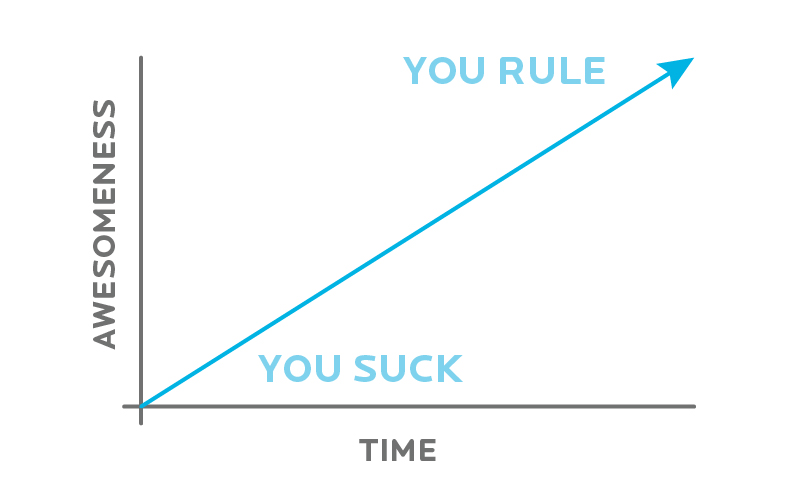
Asking for a restart because you don’t want to mess that line up is deluding yourself that somehow, next time will be easier. Next time will be perfect. No interruptions, no distractions… no… life.
Unfortunately, there is no perfect time.
We may have magical moments, of course. Short periods of time when things seem to “click” and come together.
But then the dog poops on the rug. Or the kid throws up on the couch. Or both… and then one or the other tracks it all through the house.
You keep pressing pause, and your progress looks like this.
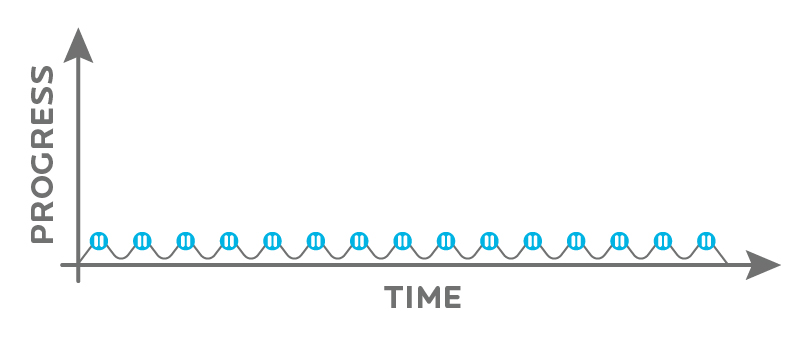
Or, worse yet, you end up flatlining, stuck on a never-ending (maybe eternal) pause.
What to do next.
Fitness in the context of real human life is just like the rest of life.
We’re all just doing the best we can in challenging, complicated circumstances. We are all living messy, imperfect lives. We are all human.
If we can just keep moving forward, no matter what happens, no pause buttons, no do-overs, we win the game.
Here are a few strategies for getting out of the pause-button mentality and into a more realistic, effective, sustainable way of thinking.
1. Try the dial method.
Think of your fitness like a dial that goes from 1 – 10.
If you were to dial it up to “10”…
- What would your workouts look like?
- What would your nutrition look like?
- What other actions/habits would you practice in that scenario?
If you were to dial it down to “1”…
- What would your workouts look like?
- What would your nutrition look like?
- What other actions/habits would you practice in that scenario?
Giving thought to your life right now, where is your dial set?
Would you like to make any adjustments?
Could you move the dial up a channel, or even half a channel?
If so, what would that look like?
On the other hand…
Should you move the dial down a channel so you can stick with health and fitness even during a difficult time?
2. Aim for a little bit better.
An all-or-nothing approach usually doesn’t get us “all”. It usually gets us “nothing”.
You know what actually works?
Small improvements done consistently over time work—we have proof in the over 150,000 clients we’ve helped through Precision Nutrition Coaching method.
You might be trying to make a meal out of hospital cafeteria food, or gas station food, or airplane food. You might be spending hours awake with a newborn in the middle of the night, or stuck in yet another full-day meeting.
These aren’t ideal scenarios, but they’re not necessarily hopeless either.
Look around. Get creative. See if you can find some small—maybe minuscule—improvements.
3. Anticipate, strategize and plan.
Since we already know that stuff is going to go wrong, the best thing we can do is anticipate and make plans for how to deal when they do.
A simple way to do this is by answering two questions:
- What’s likely to get in the way of what I hope to accomplish?
- What is something I can do today to help me keep going when I face those obstacles?
For some people, that might be a Sunday ritual where they prep food for the week so they won’t be scrambling for healthy meals on busy weeknights. For others, it might mean having a healthy meal-delivery service on speed dial.
Don’t be surprised and dismayed when things go haywire. They will at some point. Just arm yourself with the best tools and strategies so you can stay in the game when you’re thrown a curveball.
If you’re a coach, or you want to be…
You can help people build sustainable nutrition and lifestyle habits that will significantly improve their physical and mental health—while you make a great living doing what you love. We'll show you how.
If you’d like to learn more, consider the PN Level 1 Nutrition Coaching Certification. (You can enroll now at a big discount.)

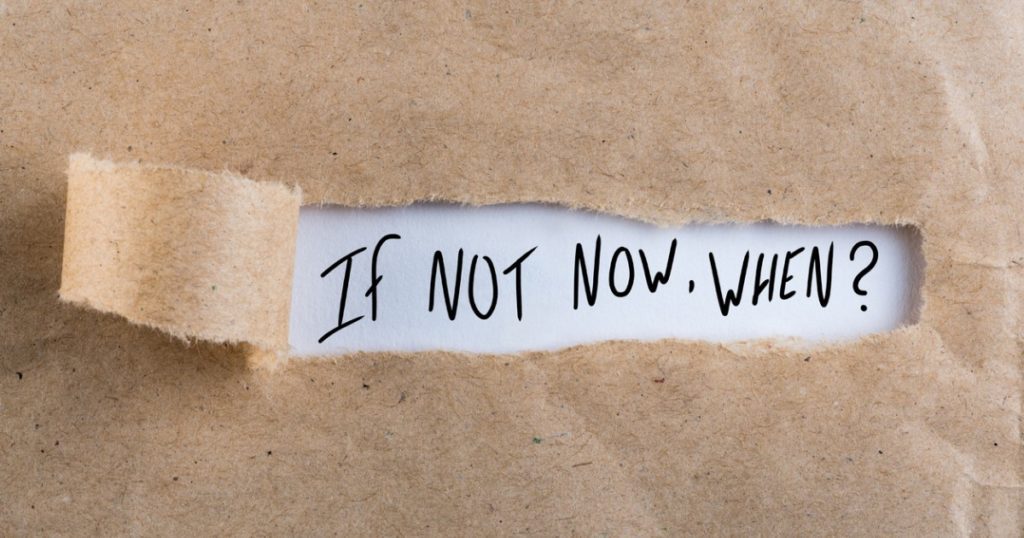

Share